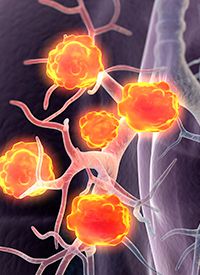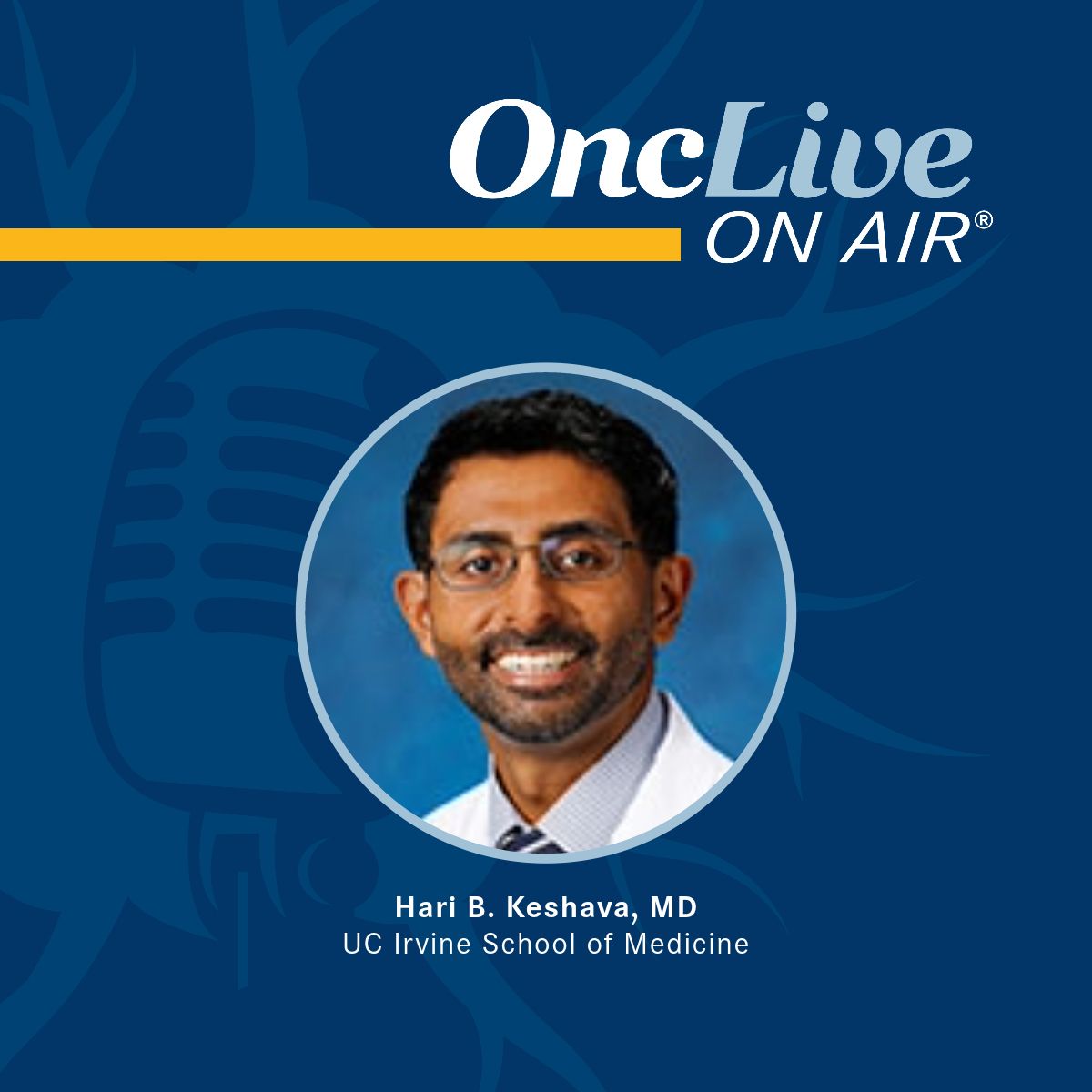News
Article
Nivolumab/Chemoradiotherapy Regimen Misses PFS End Point in Unresectable, Locally Advanced NSCLC
Author(s):
Nivolumab plus concurrent chemoradiotherapy, followed by nivolumab plus ipilimumab, did not improve PFS in unresectable stage III NSCLC.
Lung Cancer

Treatment with nivolumab (Opdivo) plus concurrent chemoradiotherapy, followed by the combination of nivolumab and ipilimumab (Yervoy) did not improve progression-free survival (PFS) vs chemoradiotherapy followed by durvalumab (Imfinzi) in patients with unresectable, locally advanced, stage III non–small cell lung cancer (NSCLC), missing the primary end point of the phase 3 CheckMate73L trial (NCT04026412).1
Safety data for the nivolumab-based regimen were consistent with the known safety profiles of each agent.
An evaluation of the data will be completed, and full results are expected to be shared with the scientific community, according to a press release from Bristol Myers Squibb.1
“Unfortunately, adding immunotherapy concurrently with definitive chemoradiation did not improve PFS outcomes in this setting,” Joseph Fiore, vice president, global program lead, thoracic cancers, Bristol Myers Squibb, stated in a news release. “There remains a critical need to improve long-term outcomes for these patients and we believe these results will help inform future drug development efforts in this setting. We want to thank the patients, families, and investigators for their contributions to this important research.”
In patients with locally advanced NSCLC that was not amenable for definitive resection, standard-of-care concurrent chemoradiotherapy historically has generated 5-year overall survival (OS) rates ranging from 15% to 32%.2
In February 2018, the FDA approved durvalumab for the treatment of patients with locally advanced, unresectable stage III NSCLC who have not progressed following chemoradiotherapy, based on data from the phase 3 PACIFIC trial (NCT02125461).3
The phase 3, randomized, open-label CheckMate73L trial enrolled patients at least 18 years of age with previously untreated, locally advanced, stage III NSCLC not intended or eligible for curative intent surgery.1,4 Specifically, patients could have stage IIIA, IIIB, or IIIC (T1-2 N2-3 M0, T3 N1-3 M0, or T4 N0-3 M0) disease, and an ECOG performance status of 0 or 1 was also required.4
Patients were excluded if they had an active infection requiring systemic therapy within 14 days prior to randomization; a history of organ or tissue transplant requiring systemic use of immune suppressive agents; or prior thoracic radiotherapy.
The study enrolled 925 patients who were randomly assigned to 1 of 3 arms:1 These included arm A: nivolumab in combination with concurrent chemoradiotherapy, followed by nivolumab plus ipilimumab; arm B: nivolumab in combination with concurrent chemoradiotherapy, followed by nivolumab monotherapy; and arm C: concurrent chemoradiotherapy followed by durvalumab monotherapy.
PFS per RECIST 1.1 criteria for arms A v C, as assessed by blinded independent central review (BICR), served as the trial‘s primary end point. Secondary end points included overall survival across all study arms; BICR-assessed PFS across all study arms; objective response rate; time to response; duration of response; and safety.
References
- Bristol Myers Squibb provides update on phase 3 CheckMate -73L trial. News release. Bristol Myers Squibb. May 10, 2024. Accessed May 10, 2024. https://news.bms.com/news/corporate-financial/2024/Bristol-Myers-Squibb-Provides-Update-on-Phase-3-CheckMate--73L-Trial/default.aspx
- De Ruysscher D, Ramalingam S, Urbanic J, et al. CheckMate 73L: a phase 3 study comparing nivolumab plus concurrent chemoradiotherapy followed by nivolumab with or without ipilimumab versus concurrent chemoradiotherapy followed by durvalumab for previously untreated, locally advanced stage III non-small-cell lung cancer. Clin Lung Cancer. 2022;23(3):e264-e268. doi:10.1016/j.cllc.2021.07.005
- FDA approves durvalumab after chemoradiation for unresectable stage III NSCLC. FDA. February 16, 2018. Accessed May 10, 2024. https://www.fda.gov/drugs/resources-information-approved-drugs/fda-approves-durvalumab-after-chemoradiation-unresectable-stage-iii-nsclc
- A study of nivolumab and ipilimumab in untreated participants with stage 3 non-small cell lung cancer (NSCLC) that is unable or not planned to be removed by surgery (CheckMate73L). ClinicalTrials.gov. Updated January 18, 2024. Accessed May 10, 2024. https://clinicaltrials.gov/study/NCT04026412









